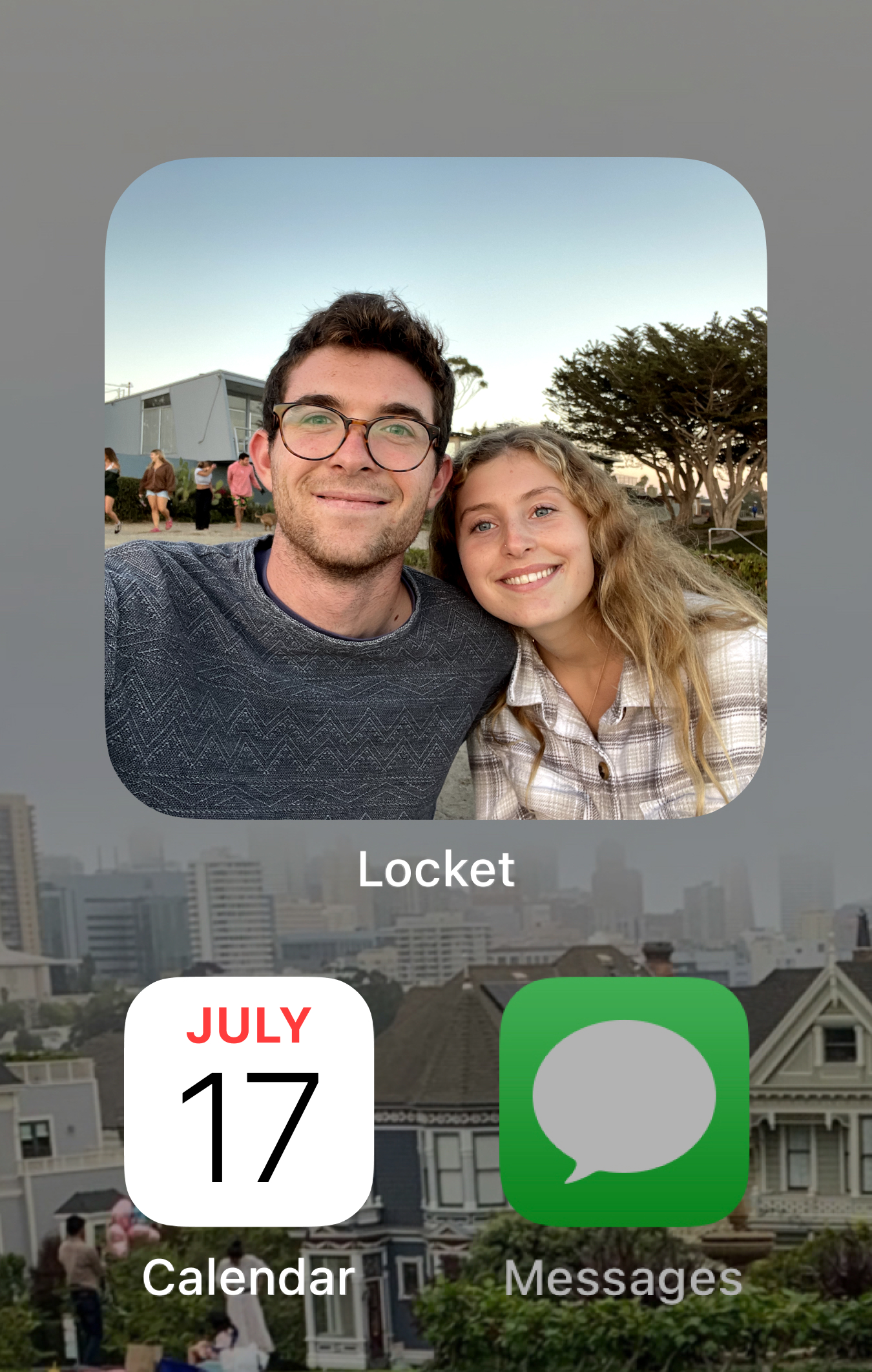Locket, the popular app that lets you post photos to your loved ones’ homescreens, raises $12.5M
Locket, a popular app for sharing photos straight to your family and friends’ homescreens, has raised $12.5 million in funding. The app rose to the top of the App Store charts after launching on New Year’s Day this year and has since amassed more than 20 million downloads. Locket’s simple premise of putting photos from […]

Locket, a popular app for sharing photos straight to your family and friends’ homescreens, has raised $12.5 million in funding. The app rose to the top of the App Store charts after launching on New Year’s Day this year and has since amassed more than 20 million downloads. Locket’s simple premise of putting photos from your friends and family onto your homescreen embodies a private social networking platform that aims to make you feel closer to your loved ones. Since its launch, Locket has seen over 1 billion photos shared.
The app was founded by Matt Moss, a former Apple Worldwide Developer Conference student scholarship winner and recent UC Santa Barbara grad. Moss initially created Locket as a personal side project for his girlfriend as a way to capture and share a genuine moment of his day with her. Moss’s friends had asked if they could use the app with their own friends and family, after which Moss made Locket publicly available on the Apple App Store and on the Google Play Store shortly after.
Moss told TechCrunch in an interview that he believes traditional social media platforms are designed to share content with hundreds of your closest friends and can also introduce challenges, such as being overly focused on like counts or continuously scrolling through endless feeds. Locket, on the other hand, is designed to make people feel closer to the 10-15 people in their lives that matter the most, while providing a simple release from doomscrolling and algorithmic feeds. The widget allows you to add up to 20 people to your homescreen, and Moss says this number is the natural limit for Locket’s core premise of focusing on your closest connections.
As for the new funding, Moss says Locket plans to use the money to hire more people and roll out new features while staying true to its core premise of helping users feel closer to their significant others, best friends and family.
“It’s been exciting to see the product resonate with people, but going forward, we have an even bigger opportunity to become the best way for people to stay in contact with those 10 to 15 people that matter the most,” Moss said. “The main impetus behind the funding is really just to accelerate; it’s just going to let us hire more people and continue to ship new features and become the product that is the best way to stay in contact with your close friends and family.”

Image Credits: Locket
Moss says Locket plans to launch new features in the coming months that will stick to the core idea of sharing little moments of your day with your favorite people. Among the new features will be new ways to respond to photos. Overall, Moss says the new features will be focused on making users’ homescreens feel more dynamic and personal. The company is also in the early days of launching a subscription model, but is currently focused on building out new features for the time being.
The company’s $12.5 million investment consists of two funding rounds. The company raised $2.5 million when Locket was first gearing up to launch in January 2022 after conducting a small round consisting of friends and close contacts. Locket then raised $10 million in seed funding in late April in a round led by OpenAI CEO Sam Altman. The round included participation from existing investors Sugar Capital and Costanoa Ventures, along with Instagram co-founder Mike Krieger and Quora CEO Adam D’Angelo.
When asked if Locket plans to add filters or effects to its camera, Moss said he doesn’t have any immediate plans to do so. He believes that it’s important for people to feel free to capture their true selves and that the best way to do that is with a simple camera experience.
He also believes Locket can help make phones feel more personal to users by ensuring that their favorite people are at the center and focus of their devices.
“I think phones have felt pretty impersonal for a long time now, as everyone opens up their phone to the same kinds of generic apps. I think we have an opportunity to flip that so the phone feels like a place where your favorite people are at the center. That’s the long-term vision that’s guiding us, particularly at a time when a lot of social media is shying away from content from your friends and keeping up with people you really care about. But, there’s always going to be a natural need for people to feel closer with their favorite people.”
Moss’s comments about social media platforms shying away from content from friends comes at a time when Instagram is facing backlash for its gradual transition away from being a place where users could mainly see photos of their friends and family into an app that’s filled with recommended posts and videos in an attempt to compete with TikTok. Moss says as social media platforms drift their focus away from prioritizing content from friends and family, it gives Locket an even better opportunity to grow and be an option for users who want to feel connected to their loved ones.
Moss says it’s important for Locket to stay true to the core of what makes it great, which is capturing and sharing genuine moments with your favorite people. The company’s next step will be what he calls “natural extensions” of the app that will allow people to get more content from the people they care about.






















